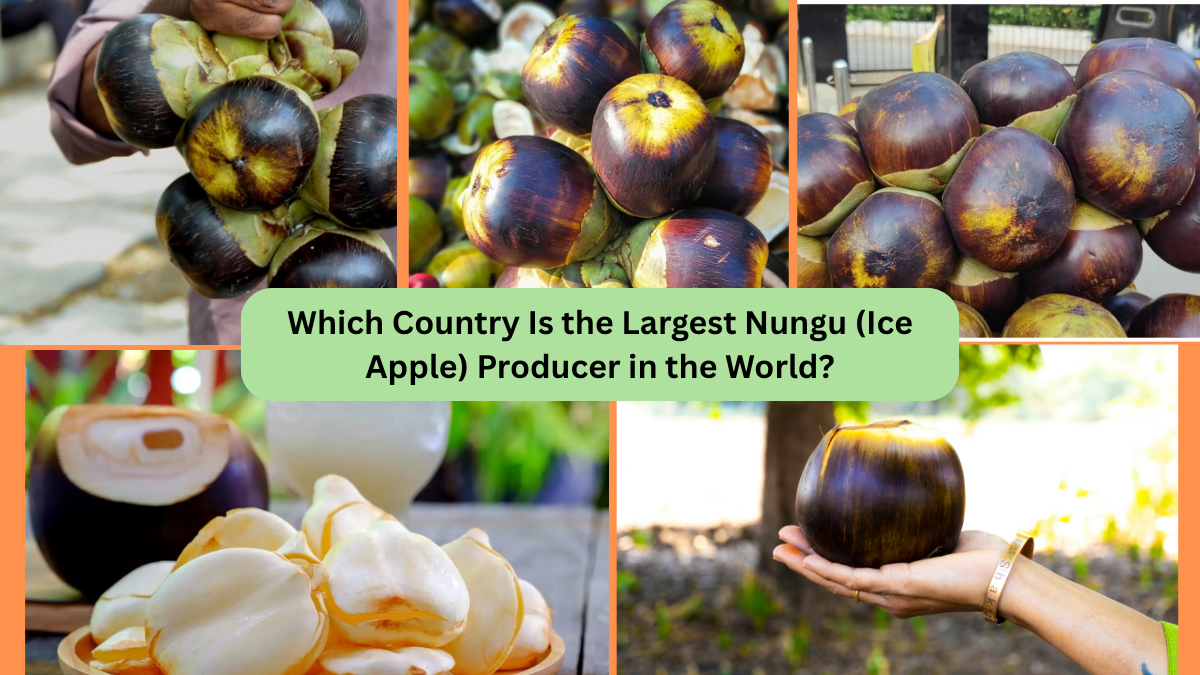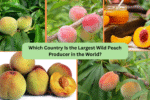Nungu, also known as Ice Apple or Palmyra palm fruit, is one of the most refreshing and health-boosting natural treats found in tropical climates. Popular for its translucent, jelly-like texture and mildly sweet flavor, Nungu holds a cherished place in the culinary traditions and wellness practices of South and Southeast Asia. But where is this cooling fruit most abundantly cultivated? Which country holds the title of the world’s largest Nungu producer? In this comprehensive article, we explore the origins, cultivation, health benefits, and the global leader in Nungu production.
What Is Nungu (Ice Apple)?
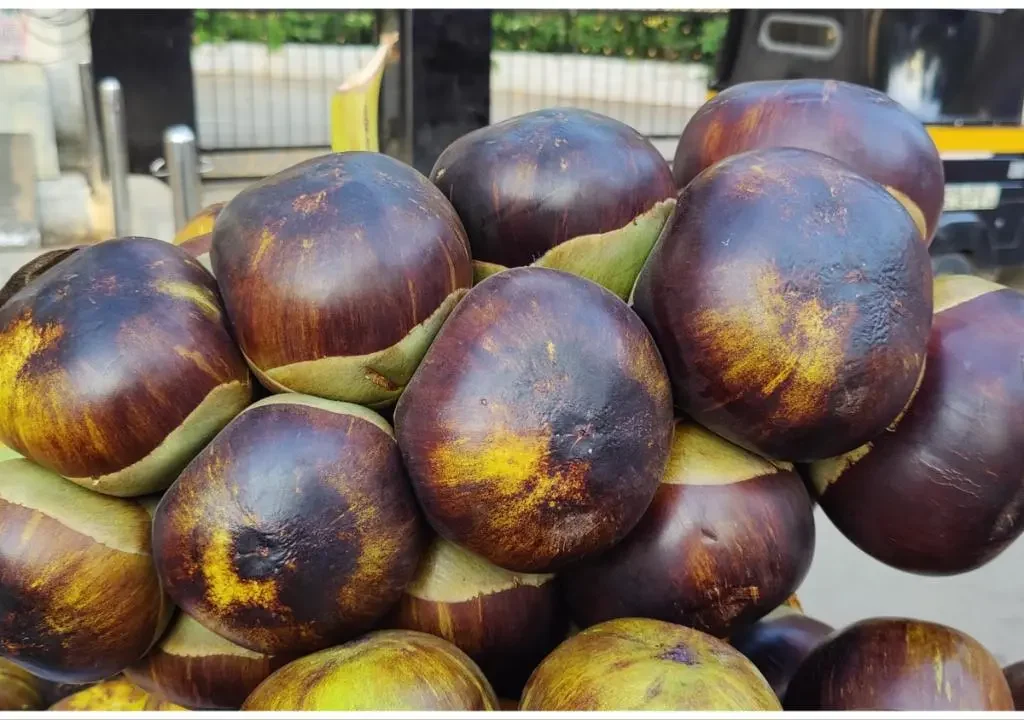
Nungu is the local Tamil name for the fruit of the Borassus flabellifer, commonly known as the Palmyra palm. Known by various regional names — Taal in Bengali, Tati Munjalu in Telugu, Tari in Gujarati, and Tal in Sinhalese — this summer fruit features a translucent, jelly-like flesh encased in a fibrous husk. It resembles a tender coconut in texture but is smaller, typically about the size of a small lime to an apple.
The fruit is known for its cooling, hydrating qualities, especially valued in tropical countries where temperatures soar during summer. The Palmyra palm, a tall, sturdy tree, grows well in arid, coastal, and semi-arid regions, where it also serves as a source of toddy (fermented sap), jaggery, and palm leaves for handicrafts.
The Historical and Cultural Significance of Nungu
For centuries, the Palmyra palm has been referred to as the “Tree of Life” in South Asia, particularly in India and Sri Lanka, for its multiple uses. Every part of the tree — from its fruit and sap to its leaves and trunk — is utilized in traditional lifestyles. Nungu has been a staple in ancient Ayurvedic practices for its cooling and detoxifying properties.
In India, the fruit is typically harvested during the peak summer months of April to June and sold in local markets and roadside stalls. It is consumed fresh, chilled, or added to local desserts and drinks.
The Largest Nungu (Ice Apple) Producer in the World: India
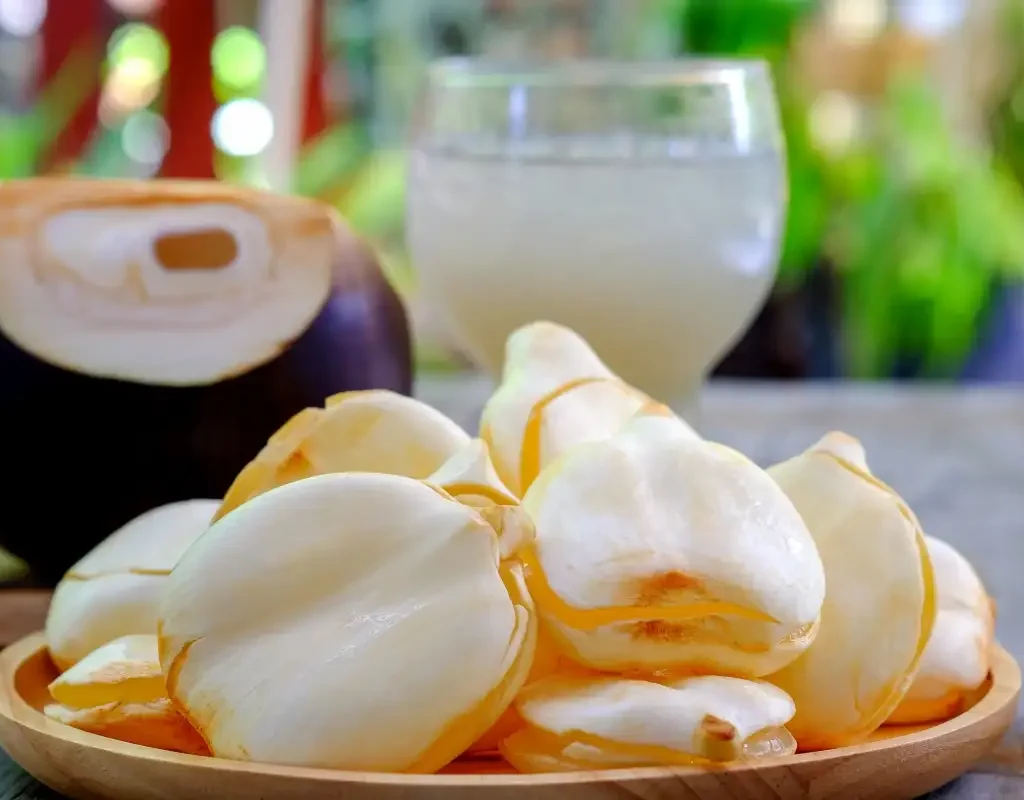
India is the largest producer of Nungu (Ice Apple) in the world. Thanks to its vast tropical regions, diverse climates, and deep-rooted cultural connection to the Palmyra palm, India has maintained both the largest cultivation area and production volume of this unique fruit.
Why India Leads in Nungu Production
1. Native Habitat and Traditional Cultivation: India, being one of the native regions of the Palmyra palm, has a long history of cultivating and using this tree. Its adaptability to arid, semi-arid, and coastal climates makes it an ideal crop for states like Tamil Nadu, Andhra Pradesh, Telangana, Kerala, Odisha, West Bengal, and Maharashtra.
2. Favorable Climate: The hot and humid summer climate in these states provides ideal conditions for the Palmyra palm to thrive. The tree requires minimal maintenance and is drought-resistant, making it a vital resource for rural and coastal communities.
3. Cultural and Culinary Integration: In India, Nungu isn’t just a seasonal fruit — it’s a cultural experience. From ancient Ayurvedic texts to traditional summer coolers and street-side treats, the fruit is deeply woven into the culinary identity of the country.
4. Economic and Medicinal Value: Apart from the fruit, the Palmyra palm contributes economically through toddy tapping, jaggery production, palm leaf handicrafts, and timber. Its medicinal benefits, such as acting as a body coolant, improving digestion, and providing hydration, have further boosted its popularity.
Other Notable Nungu Producers
While India tops global production, several other countries also cultivate Palmyra palm for Nungu and other uses:
Sri Lanka: Often regarded as the second-largest producer, Sri Lanka grows Palmyra palm extensively in its northern and eastern provinces. The fruit, known locally as Tal, is a popular summer delicacy and is used in traditional medicines.
Bangladesh: In Bangladesh, Palmyra palm trees dot the rural and coastal landscapes. The fruit is enjoyed fresh during the summer and is also used to make traditional sweets.
Thailand and Myanmar: These Southeast Asian nations cultivate the Palmyra palm, using the fruit for local consumption and the sap for producing jaggery and alcoholic toddy.
Indonesia and Cambodia: The Palmyra palm is an essential part of agricultural systems in these countries, though on a smaller scale compared to India and Sri Lanka.
Health Benefits of Nungu (Ice Apple)
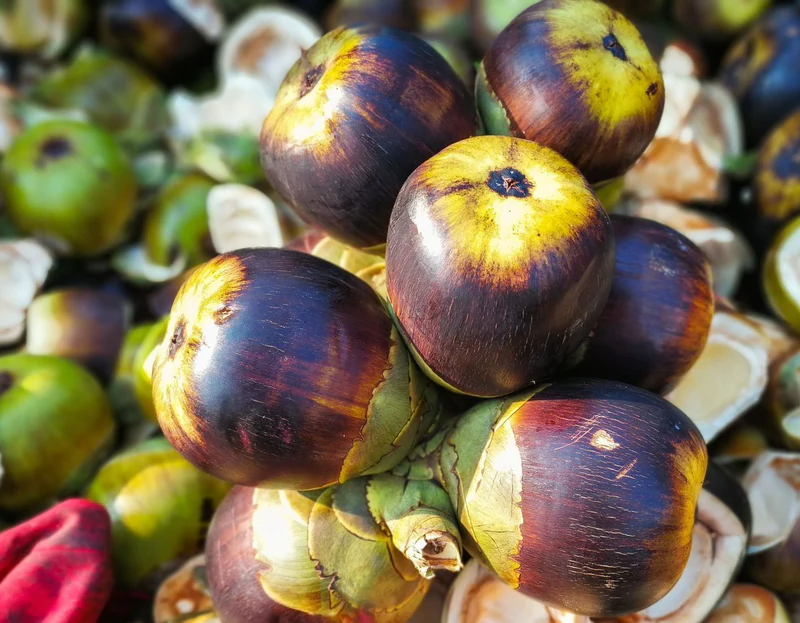
Nungu is often hailed as a natural health tonic with multiple benefits:
- Natural Body Coolant: Perfect for lowering body heat during scorching summers.
- Rich in Electrolytes: Helps in rehydrating the body and maintaining electrolyte balance.
- Aids Digestion: Contains dietary fiber and natural enzymes that promote gut health.
- Low-Calorie Snack: Ideal for weight management, offering hydration and satiety with minimal calories.
- Rich in Vitamins and Minerals: Provides essential nutrients like Vitamin B, C, potassium, iron, calcium, and phosphorus.
Culinary Uses of Nungu in India
In India, Nungu is consumed in a variety of ways:
- Fresh and Raw: Peeled and chilled, often eaten plain or with a sprinkle of sugar.
- In Beverages: Added to summer coolers like Nungu Sherbet and fruit juices.
- In Traditional Sweets: Used in payasam (kheer), halwa, and ice creams.
- With Jaggery: Mixed with palm jaggery syrup for a naturally sweet dessert.
Challenges in Nungu Production
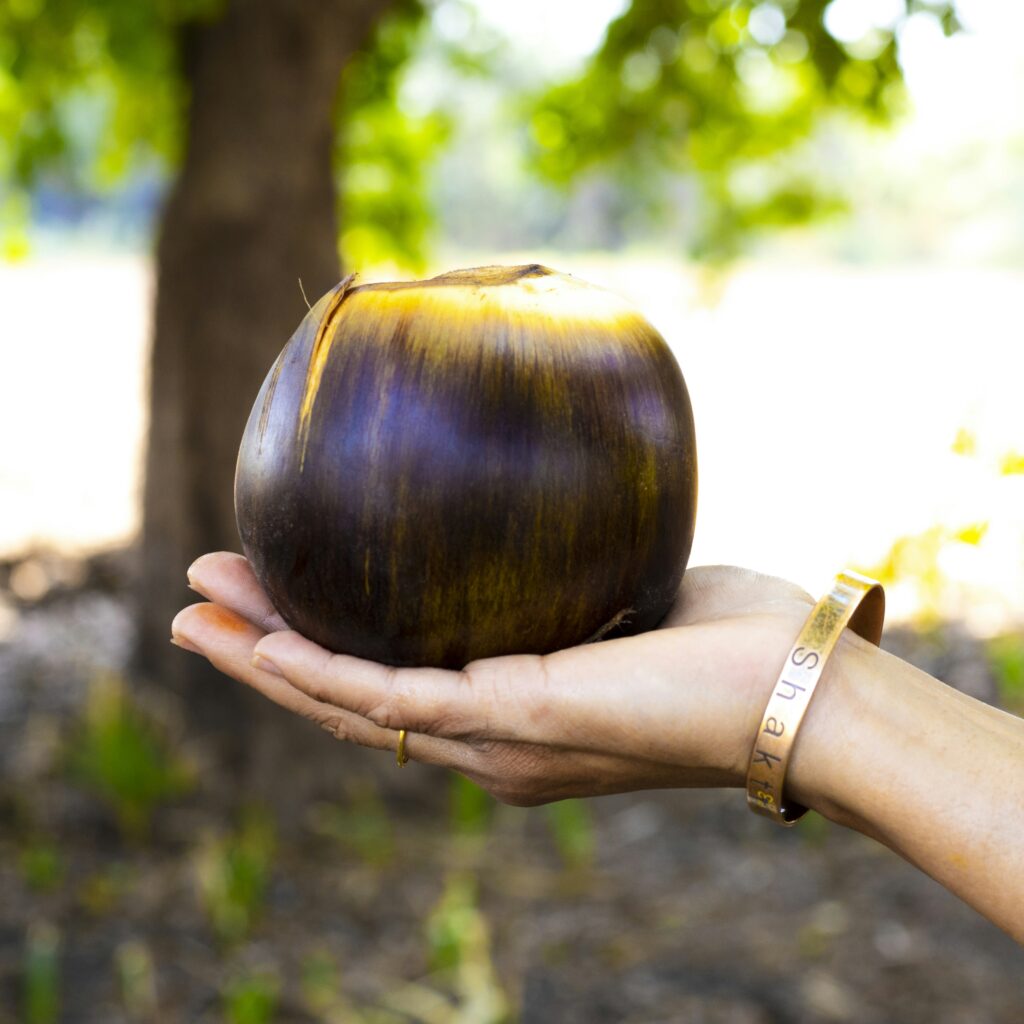
Despite its popularity and health benefits, Nungu cultivation faces several challenges:
- Seasonal Availability: The fruit is only available for a brief period, limiting year-round supply.
- Perishability: Ice apples have a short shelf life, requiring immediate consumption or refrigeration.
- Labor-Intensive Harvesting: Extracting the tender fruit involves skilled labor and manual effort.
- Underutilization of By-products: While the fruit is consumed widely, other parts like seeds and husks are often discarded.
Prospects for the Global Market
With increasing global interest in exotic, functional, and health-centric foods, Nungu has potential for international markets — particularly in the wellness, organic, and vegan food segments. Exporting frozen or preserved Nungu pulp, ready-to-drink Nungu beverages, and health supplements could offer promising opportunities.
Conclusion
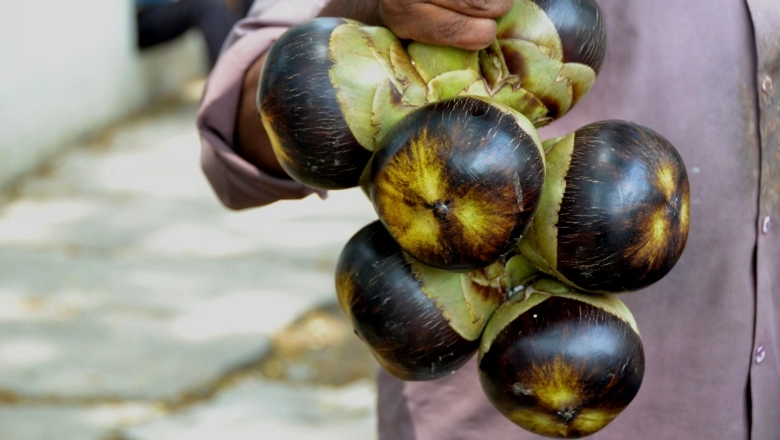
India’s tropical climate, native history, and cultural significance have established it as the world’s largest Nungu (Ice Apple) producer. From bustling streets of Tamil Nadu to tranquil villages in Odisha, Nungu remains a summer essential, celebrated for its cooling properties, nutritional benefits, and culinary versatility.
While Sri Lanka, Bangladesh, and Thailand contribute to global Nungu cultivation, India’s dominance in production volume and market integration remains unmatched. As awareness of the fruit’s health advantages grows worldwide, Nungu holds exciting potential for both domestic and international food and wellness markets — carrying forward a legacy rooted in India’s agricultural and cultural heritage.
